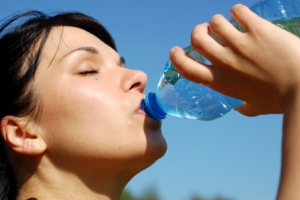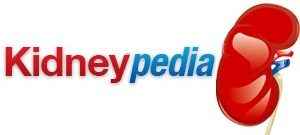
Drink lots of water to avoid getting kidney stones
Kidney stones happen when minerals precipitate from the urinary stream and form crystals that increase in size by accumulating more mineral of the same type. The crystals can form anywhere in the urinary tract, but tend to create the most potential for problems when they form in the tiny vessels within the kidneys (the ureters). Most of the time, kidney stones pass out of the body without ever causing symptoms. When they reach a size large enough to become lodged in the ureters, however, kidney stones can cause intense pain, and sometimes can produce more serious symptoms including damage to the kidneys and blocked urinary flow. When a stone is formed, various treatments can be applied to remove them. These range from monitoring and pain management to intrusive surgery to remove the stone.
However, as with all illnesses, the best approach to kidney stones is prevention rather than treatment. What are some of the causes of kidney stones? How can the condition be prevented?
Causes Of Kidney Stones
Kidney stones happen when urinary fluid becomes super-
That is to say, kidney stones can result from dehydration (insufficient water) or from excessive intake of certain minerals. It can also result from excessive intake of animal protein, which acidifies the blood and promotes the dissolution of calcium from the bones to offset this acidification. A few other causes have also been identified.
Dehydration
One preventive activity for kidney stones is increasing fluid intake. This can be simply a matter of drinking more water. However, somewhat more effective is to increase drinking of citrate-
Calcium And Sodium
Dietary calcium intake from food has not been shown to have any correlation with kidney stones. However, calcium supplements have been shown to be a cause of kidney stones. Maintaining calcium intake at 1000-
Animal Protein
Reducing meat consumption to no more than 230 grams (about 8 ounces or half a pound) can help prevent kidney stones from this source.
Oxalate
Foods containing oxalate can promote kidney stones, so these foods should be limited. They include spinach, strawberries, nuts, wheat germ, rhubarb, chocolate, and tea.
Urine Alkalinization
Although the most common form of kidney stones consists chemically of calcium oxalate, another common form of kidney stone is crystallized uric acid. Uric acid stones tend to form from lower pH values in the blood, which is another reason why high meat consumption can lead to kidney stones. Raising the pH (alkalinization) counteracts this effect.
Dietary supplemental means of alkalinization include taking sodium bicarbonate, potassium citrate, and magnesium citrate. However, care must be taken not to over-
